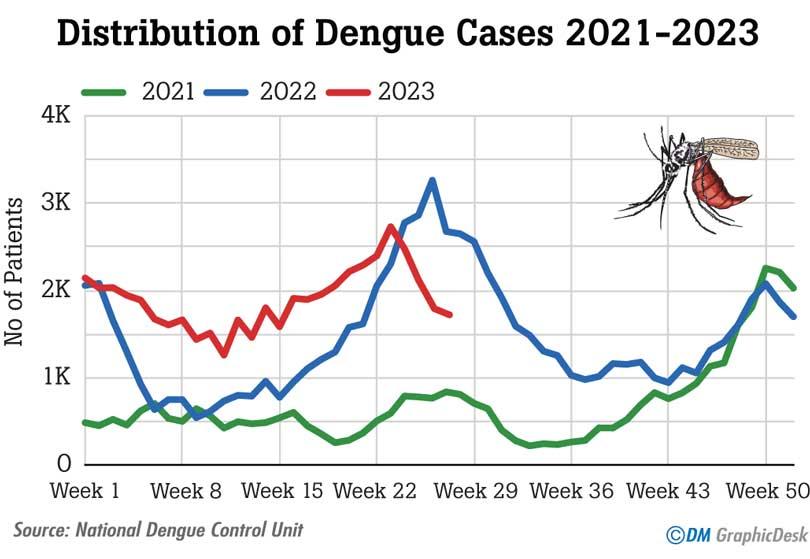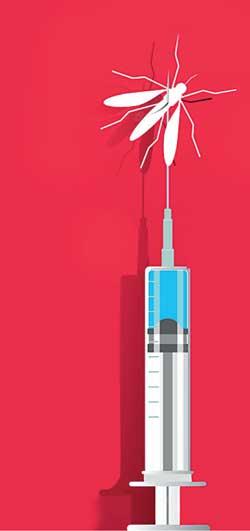15 Jul 2023 - {{hitsCtrl.values.hits}}

 After 75 years of global efforts to find a vaccine to fight dengue, virologists are suggesting that inoculation may not offer long-lasting immunity against all four dengue virus serotypes, the foreign media reports.
After 75 years of global efforts to find a vaccine to fight dengue, virologists are suggesting that inoculation may not offer long-lasting immunity against all four dengue virus serotypes, the foreign media reports.
According to the foreign media, the lack of a suitable animal model prevents clarity on precisely how protection against dengue is achieved. Since the disease pathogenesis is unclear, virologists say an imperfect vaccine may have to do.
Dengue vaccines so far have prevented severity in clinical outcomes but not stopped the infection itself. Trials show that it is difficult to obtain efficacy data for all four serotypes as not all of them co-circulate even in dengue-endemic areas.
“Taking into consideration these factors, the path to an ideal dengue vaccine is a tall order,” says Sathyamangalam Swaminathan, a virologist formerly with the International Centre for Genetic Engineering and Biotechnology, in Delhi.
An ideal dengue vaccine should be able to offer long-lasting immunity against all four dengue virus serotypes, irrespective of age or prior exposure. This would eliminate the risk posed by development of antibody-dependent enhancement (ADE), a severe outcome of dengue infection.
Any vaccine should be capable of protecting against the clinical spectrum of the disease, and not just against severe disease. Additionally, it should be able to disrupt the spread of all four serotypes.
Several dengue vaccine candidates on different platforms, including live-attenuated viruses, inactivated viruses, DNA and recombinant proteins, are under pre-clinical investigation or are undergoing clinical trials.
Presently, only live-attenuated vaccine candidates have reached advanced stages of clinical development. These trials showed that the path to a perfect dengue vaccine is much more nuanced than estimated.
Vaccine candidates were based on the premise that significant neutralizing antibodies towards all serotypes would ensure protection against the disease. But clinical trials from Sanofi Pasteur’s Dengvaxia, the first commercially licensed dengue vaccine, demonstrated that this is not necessarily true. This, according to Swaminathan, demonstrated that immunogenicity data is not a surrogate marker for protective efficacy.
Neelika Malavige, head of Dengue Global Programme and Scientific Affairs, South Asia, at the Drugs for Neglected Diseases initiative (DNDi), says Dengvaxia, the only commercial vaccine to date, raised a safety issue in the Philippines thus abruptly bringing its application to a halt. The immune correlates of protection, or the measurable signs of individual immunity, are not known.
Researchers explored the role of T-cell responses or cell-mediated immunity in vaccine recipients. Earlier, researchers believed that cross-reactive T-cells contributed to disease severity, but Malavige said recent studies showed that T-cells are important in controlling viral infection.
16 Nov 2024 1 hours ago
16 Nov 2024 2 hours ago
16 Nov 2024 2 hours ago
16 Nov 2024 3 hours ago
16 Nov 2024 4 hours ago